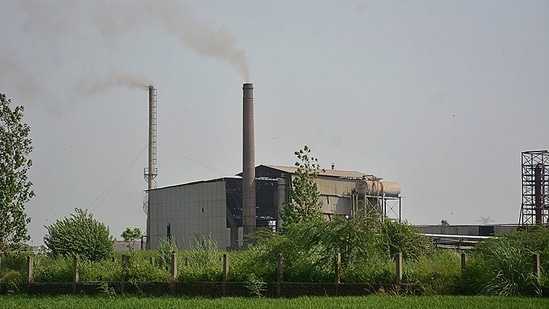Construction, operation of buildings responsible for 38% global emissions: WEF
With over half of the world's population living in cities and producing over 70 per cent of carbon emissions, cities play a key role in combatting climate change, the World Economic Forum said in a paper.
Construction and operation of buildings are responsible for 38 per cent of global emissions and there is an urgent need for solutions to help accelerate decarbonisation of the urban-built environment to limit the global temperature rise to below 1.5°C, the World Economic Forum said in a paper on Friday.

The paper, produced in collaboration with Accenture, also noted that numerous technologies exist to help decarbonise the sector but there is an urgent need to accelerate investment to implement these solutions at scale in cities around the world.
The paper has proposed a more holistic decision-making approach, recognising the importance of social and environmental outcomes as well as system performance.
With over half of the world's population living in cities and producing over 70 per cent of carbon emissions, cities play a key role in combatting climate change, the WEF said.
It said some leaders in sustainable buildings have started to consider social and environmental impacts in their decision-making and many obstacles to investment in net-zero buildings still relate to financing, both real and perceived.
The WEF said its 'Net-Zero Carbon Cities Building Value Framework' seeks to accelerate investment by overcoming these barriers.
The paper also cited examples, including of the Belgian real estate company Extensa using complementary solar and geothermal technologies to renovate and refurbish an old railway station in Brussels.
In another case study from Turin, Italy, it said a municipality, in collaboration with leading smart energy service provider Enel X, retrofitted municipal buildings for energy efficiency and on-site renewable generation.
Geneva-based WEF, which describes itself as an international organisation promoting public-private cooperation, said the flexibility of its Building Value Framework means it can be used for the retrofit and refurbishment of existing buildings, as well as for the construction of new buildings.
"The urgency to transition the world's cities towards a net-zero carbon future is abundantly clear. The Building Value Framework presents an approach to help accelerate the investments needed to deliver a greener urban built environment," it added.
If the world is to keep pace with limiting the global temperature rise to below 1.5ºC compared to pre-industrial levels, a transition to a clean electrified world is needed," the WEF said.



